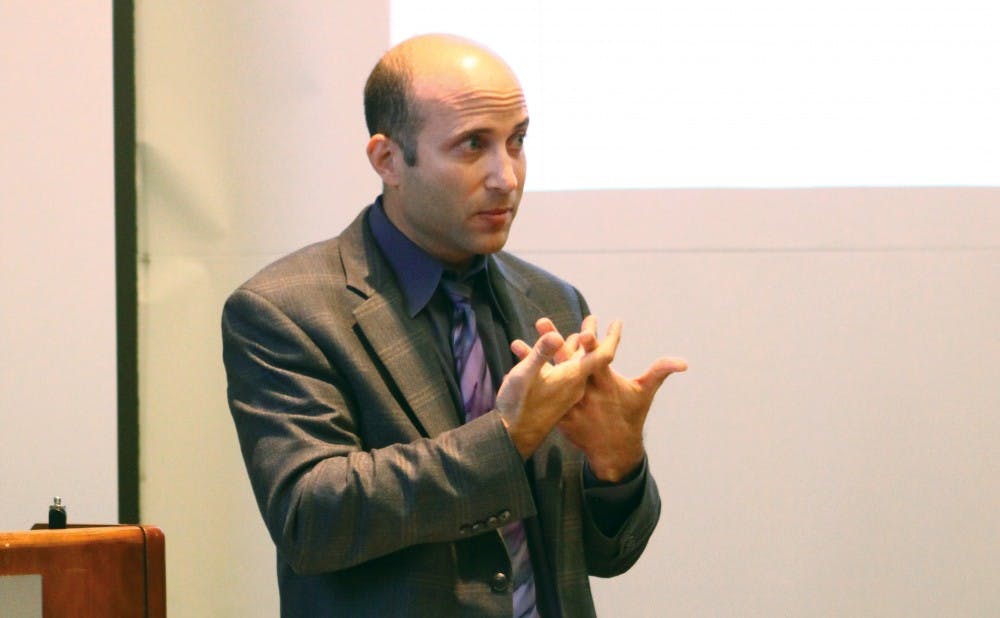Erez Manela, a professor of history at Harvard University, discussed Franklin D. Roosevelt’s vision for China’s global role Wednesday.
Manela discussed Roosevelt’s vision of China as a major global power post-World War II at the Sanford School of Public Policy. Roosevelt’s insistence that China would become one of the United Nations’ “four policemen”—the four nations which would be permitted to use armed force for regulatory purposes—baffled foreign powers at the time because they had perceived China as an insignificant player in international affairs, Manela said.
“It’s not only about China, it’s not only about East Asian security,” he said. “It’s a crucial part of the global architecture.”
Manela said Roosevelt selected China as one of the four policemen for symbolic reasons. China’s role as one of the four great powers would legitimize the United Nation’s anti-imperialist credo and include non-Western nations in the highest rung of the new order, he said.
“What do you do with all those post-colonial territories?” Manela said. “How do you bring them into this order you are creating? China, in his mind, was representative of these new nations. You have to show these post-colonial territories that you are serious.”
Manela suggested the possibility of reviving Roosevelt’s vision as a new approach to the United States’ relationship with China, which has been antagonistic for a long time. He also questioned the idea that close ties to Japan and South Korea were fundamental to United States’ foreign policy.
He emphasized that Roosevelt did not prescribe shared democratic values as a pre-requisite for establishing a working relationship between the United States and China.
“From FDR’s perspective, first of all, the alliance with China was both natural and necessary,” Manela said. “Again, not because of shared values, but because of shared interests.”
When the floor opened for questions, an audience member asked Manela whether he considered a closer working relationship with China a positive or negative.
Manela clarified that history did not make policy prescriptions and that determining the proper course of policy action was not his expertise.
“As a historian, I’m almost sworn to never talk about the future,” Manela said.
Manela concluded his lecture by emphasizing the importance of history in presenting new possibilities without pointing toward one policy direction or another.
“One of the things history can do is expand our minds about possibilities,” he said. “It can help us shake ourselves loose from frameworks of thinking in which we may be stuck.”
Audience reactions to the talk were largely positive.
“I thought he did a great job of making it clear that history really is about possibilities and making us think about things in different ways,” said Ethan Ruby, a senior.
Freshman Adam Lemon noted that he was intrigued by Roosevelt’s foresight.
“It was interesting to learn how FDR spent so much time on guaranteeing what was at the time a widely disregarded nation a place among the great powers,” Lemon said. “China was once a great power, and FDR had the foresight to see that it would be again.”
The event was part of the Sanford History and Public Policy Speaker series and was sponsored by Sanford, American Grand Strategy and the Triangle Institute for Security Studies.
Correction: This article has been updated to read four policemen instead of four horsemen for the UN.
Get The Chronicle straight to your inbox
Signup for our weekly newsletter. Cancel at any time.

